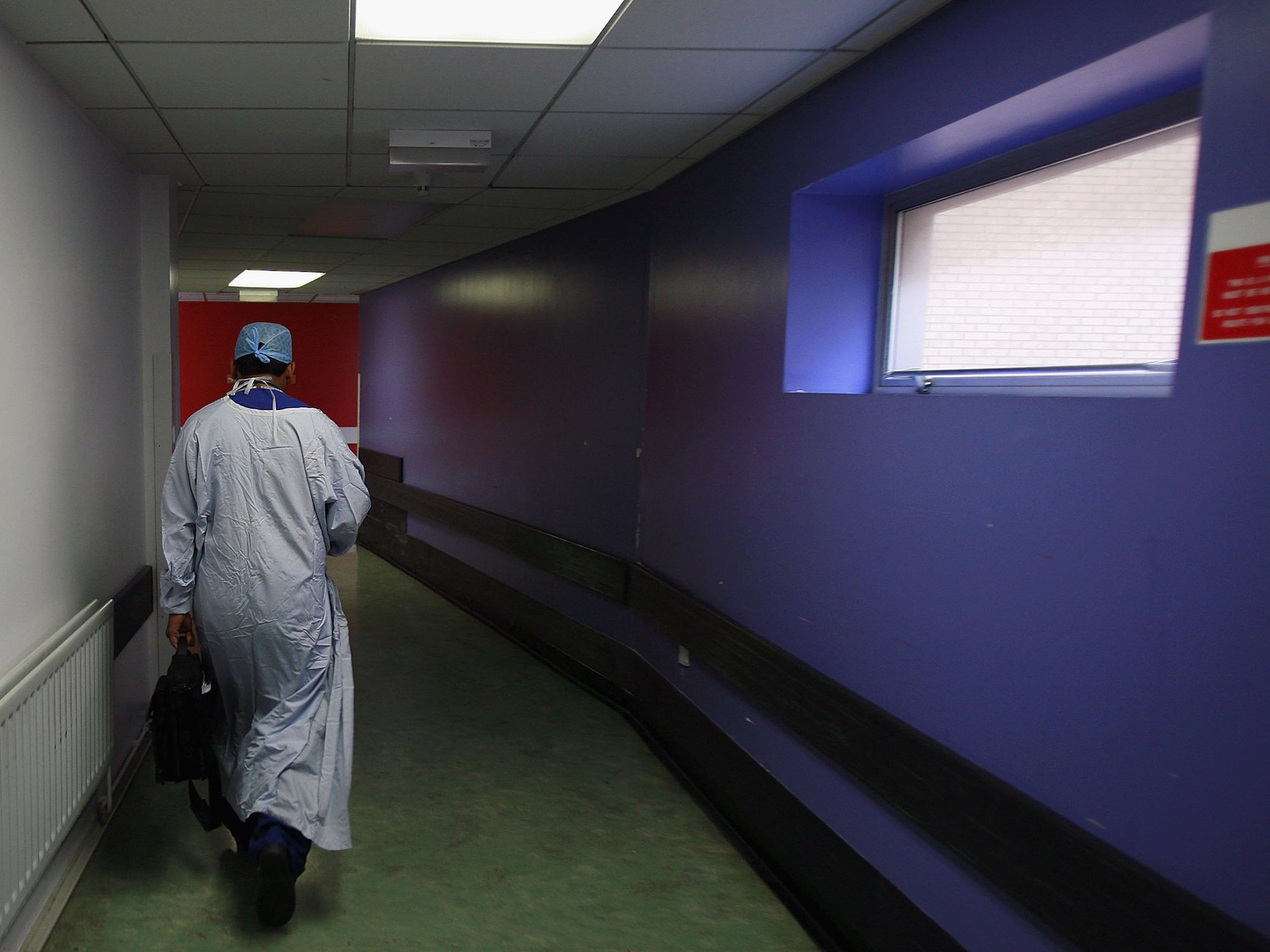Doctors mull strike action over ‘30% real-terms pay cut since 2008’
BMA members point to recent union success in forcing pay increases

Your support helps us to tell the story
From reproductive rights to climate change to Big Tech, The Independent is on the ground when the story is developing. Whether it's investigating the financials of Elon Musk's pro-Trump PAC or producing our latest documentary, 'The A Word', which shines a light on the American women fighting for reproductive rights, we know how important it is to parse out the facts from the messaging.
At such a critical moment in US history, we need reporters on the ground. Your donation allows us to keep sending journalists to speak to both sides of the story.
The Independent is trusted by Americans across the entire political spectrum. And unlike many other quality news outlets, we choose not to lock Americans out of our reporting and analysis with paywalls. We believe quality journalism should be available to everyone, paid for by those who can afford it.
Your support makes all the difference.Doctors say they have suffered a real-terms pay cut of 30 per cent since 2008, raising the prospect of strikes as a new wave of Covid-19 threatens to put hospitals under higher pressure.
Members of the British Medical Association (BMA) said at their annual conference in Brighton that doctors’ pay had fallen against the RetaiI Price Index for nearly 15 years, causing a “career earnings loss amounting to millions of pounds” to each doctor.
Delegates at the conference mandated the BMA to “achieve pay restoration to 2008 value for its members within the next five years”.
“Pay restoration is the right, just and moral thing to do, but it is a significant demand and it won’t be easy to win,” said Dr Emma Runswick, who presented the conference mandate.
“Every part of the BMA needs to plan for how to achieve this. But I’m not foolish, I know that it’s likely that industrial action will be required to move the governments on this issue.”
Dr Runswick continued: “All around us workers are coming together in trade unions and winning big – last month bin men in Manchester 22 per cent; Gatwick airport workers won a 21 per cent pay increase two weeks ago; and in March cleaners and porters at Croydon hospital won a 24 per cent pay rise.
“Those workers got together and used a key tool that trade unions have – the ability to collectively organise, collectively negotiate and collectively withdraw our labour ... vote for this motion and I’ll see you on the picket lines.”
One doctor told the conference: “I am a single parent who is struggling to survive on my consultant salary.”
The outgoing head of the BMA, Dr Chaand Nagpaul, in his final speech to conference, warned there were 50,000 fewer doctors than the average among Organisation for Economic Co-operation and Development (OECD) members, which include France, Germany, Canada and Japan, and said the government “needs to wake up, open its eyes and realise that we can’t afford to lose a single doctor if patients aren’t to suffer more”.
Dr Nagpaul’s warning came as NHS figures revealed the number of Covid patients in hospitals was surging and bed demand was on par with winter levels.
Delegates called on ministers to urgently address NHS workforce shortages to help the health service deal with the record waiting list of patients stretched by earlier waves of the pandemic.
A motion passed at the BMA’s annual meeting in Brighton called on governments to put in place a workforce plan and “take the money that is destined to pay the private sector to do NHS work and invests it in expanding the capacity of the NHS”.
Presenting the motion, Dr Jacqueline Davis told the conference: “There is an answer to the backlog and the unmanageable workloads facing exhausted NHS staff.
“The NHS is facing record demand with no additional capacity. Staff are leaving in droves and there’s no rescue plan beyond ‘work harder’.”
Join our commenting forum
Join thought-provoking conversations, follow other Independent readers and see their replies
Comments